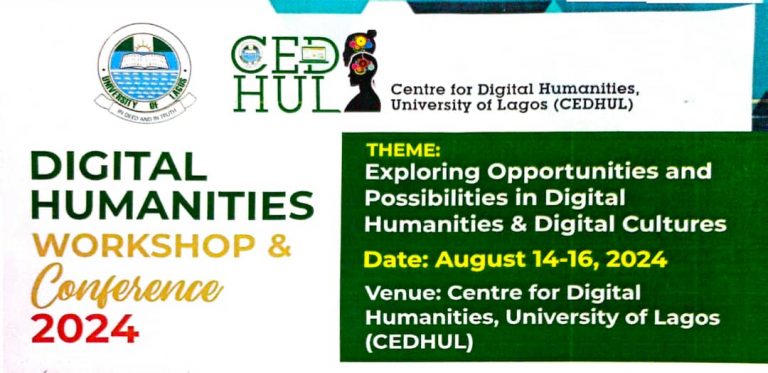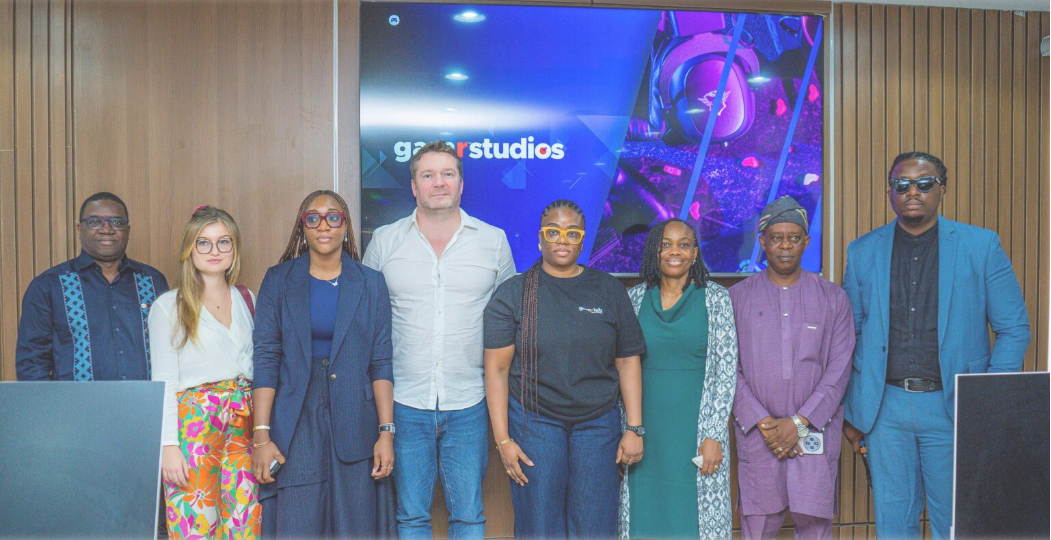University of Lagos (UNILAG) has held its Digital Humanities Workshop 2024, exploring the intersection of technology and the humanities. The event showcased the latest developments in the digital world and highlighted how digitisation is transforming the study and practice of the humanities.
The hybrid event, “Exploring Opportunities and Possibilities in Digital Humanities and Digital Cultures,” occurred in Lagos, Nigeria, on August 14, 2024.
It drew scholars, students, and tech enthusiasts from across and outside the campus, eager to explore the role of digitisation in humanities. The program featured keynote addresses, interactive workshops, and activities designed to foster interdisciplinary collaboration and innovation.
Read also: LDMT 2024 to empower marketing experts with future-ready strategies
Driving Africa’s Digital Future
The Special Guest, Mr Adeyemi Adeyinka, CEO/MD of Intermac Consulting Nig., underscored the importance of digital competence in today’s world, emphasising that equipping students, scholars, and researchers with digital skills is crucial for driving innovation and creating new knowledge.
“One of our core missions is to foster digital competence among students, scholars, and researchers. We recognise the importance of equipping the next generation with the skills necessary to thrive in an increasingly digital world,” Adeyinka said. He also highlighted the company’s commitment to digital solutions rooted in the belief that technology can enhance research, teaching, and learning.
Adeyemi revealed that Intermac Consulting has been in talks with UNILAG’s Centre for Digital Humanities (CEDHUL) about a turnaround renovation and the supply of computers and other resources to elevate the Centre to a global brand.
He tied this vision to the African Union Agenda 2063, noting that digital transformation, including AI and machine learning, is essential for achieving the “Africa We Want for 2063.”
Global Perspectives on Digital Humanities
Brian Rosemblum, co-director of the Institute for Digital Research in the Humanities at the University of Kansas and the event’s keynote guest, provided a global perspective on the importance of digital humanities. Rosemblum emphasised that digital humanities is more than a service or methodology; it is a collaborative space where humanities scholars and technologists can explore and build innovative solutions.
“Digital humanities is not a service or a methodology; it’s a meeting place for the humanities to explore and build technology solutions, such as digital publishing, digital marketing, and digital storytelling,” Rosemblum explained. His remarks resonated with attendees, underlining the potential of digital humanities to connect people, ideas, and technologies globally.
Read also: Seven South African Tech startups join forces for Irish Tech Challenge
Leadership and the Future of Digital Humanities in Africa
The event also featured notable contributions from leaders in the field, including Dr Kofo Adedeji, co-director of CEDHUL; Ope Davies, convener of CEDHUL 2024; Prof. Folashade Ogunsola, vice-chancellor of UNILAG and special guest of honour; and Dr Ayo Ogunsan, a member of CEDHUL’s advisory board.
These leaders discussed the role of digital humanities in shaping the future of Africa, with a particular focus on how the discipline can address the continent’s unique challenges and opportunities. They stressed the importance of collaboration between academia, industry, and government to foster a thriving digital ecosystem in Africa.
As the event concluded, participants lauded UNILAG for its leadership in digital humanities. The Digital Humanities Workshop 2024 was widely regarded as a success, solidifying UNILAG’s reputation as Nigeria’s digital creation and innovation hub. The program showcased the university’s commitment to advancing digital humanities and highlighted the potential of digital technologies to transform education, research, and cultural understanding across Africa.
About the University of Lagos’s Centre for Digital Humanities
UNILAG’s Centre for Digital Humanities has established itself as a leading African institution dedicated to integrating technology into humanities research and education. The Centre offers various training programs and capacity-building initiatives to foster digital competence. With a commitment to innovation and global collaboration, CEDHUL continues to drive the digital transformation of humanities studies, significantly contributing to Nigeria’s academic and technological advancement.















